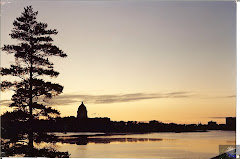Reuters
Pope Francis attends a consistory at the Vatican
.
Pope Francis (R) attends a consistory at the Vatican September 30, 2013. REUTERS/Osservatore Romano
By Philip Pullella
VATICAN CITY (Reuters) - Eight cardinals will begin closed-door meetings with Pope Francis on Tuesday to help him reform the Vatican's troubled administration and map out possible changes in the worldwide Church.
Francis, who has brought a new style of openness, simplicity and a conciliatory tone to the papacy, wants to consult more with Church officials around the world before making decisions affecting the life of the 1.2-billion-member Church.
Some of the topics expected to be discussed are how to give women a greater role in the Church short of the priesthood, financial reform, the position of divorced Catholics, and the continued fallout from the worldwide sexual abuse crisis.
Francis announced the papal advisory board of cardinals, revolutionary for a Church steeped in hierarchical tradition, a month after his election as the first non-European pope in 1,300 years and the first from Latin America.
His decision to take advise from the cardinals from Italy, Chile, India, Germany, Democratic Republic of Congo, the United States, Australia and Honduras, is a clear sign that he intends to take seriously calls from within the Church for de-centralization in a traditionally top-heavy institution.
Each cardinal polled their faithful and bishops about what should be discussed at the meetings, which will be closed to even top officials from the Vatican's Secretariat of State, which is itself a target of reform.
The group's chairman, Cardinal Oscar Rodriguez Maradiaga of Tegucigalpa, Honduras, told a Canadian Catholic television network he had 80 pages of suggestions from Latin America alone.
The other cardinals on the advisory board are Giuseppe Bertello of Italy, Francisco Javier Errazuriz Ossa of Santiago, Chile, Oswald Gracias of Mumbai, India, Reinhard Marx of Munich, Laurent Monsengwo Pasinya of Kinshasa, Sean Patrick O'Malley of Boston and George Pell of Sydney.
CONSTITUTIONAL REFORM
The group's main task is to suggest changes to a constitution by the late Pope John Paul II called "Pastor Bonus," which gave the various departments that run the Church their current structure in 1988.
The Curia, as it is known, has been riven by scandals over the years and bishops around the world have deemed it heavy-handed, autocratic, condescending and overly bureaucratic.
Maradiaga said the constitution governing the structure of the Curia would have to be re-written rather than modified.
Former Pope Benedict, who resigned in February, left a secret report for Francis on the problems of the Curia, which were exposed when sensitive documents were stolen from Benedict's desk by his butler and leaked to the media.
There have been suggestions that some Vatican departments be merged and others closed in order to make the Curia more efficient and to prevent corruption.
Vatican spokesman Father Federico Lombardi told reporters on Monday about 80 documents had been prepared for discussion.
"No-one should expect the Curia or the governance of the Church to be reformed in three days," he said, adding Francis had decided to make the council a permanent fixture with an open-ended mandate.
After three days of meetings, the eight cardinals will accompany Francis to the central Italian hill town of Assisi on Friday. Francis took his name from the saint who is revered around the world as a symbol of austerity, simplicity, concern for the poor and a love of the environment.
(Reporting By Philip Pullella; Editing by Janet Lawrence)
* Religion & Beliefs
* Society & Culture
